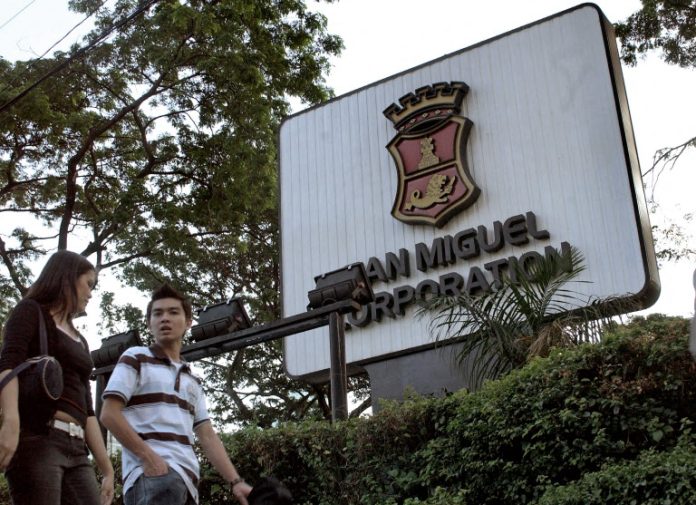Representatives of communities, consumers, fisherfolk, youth, and environmental groups in the Philippines are calling on international financial institutions to withdraw their investments from San Miguel Corporation (SMC).
The groups claim that SMC, one of the largest energy producers in the country, continues to expand its coal and gas operations.
Letters were sent to key executives, sustainability leaders, and regional offices of SMC’s major financiers, including UBS, Allianz, HSBC, BlackRock, JPMorgan Chase, and Standard Chartered.
The letters emphasize that by funding SMC, these institutions risk public backlash and financial and legal complications, particularly due to SMC’s operations in the Verde Island Passage (VIP), a vital marine biodiversity area called the “Amazon of the Oceans.”
SMC’s subsidiary, San Miguel Global Power Holdings (SMGPH), controls two fossil gas projects in the region: the 1.7-gigawatt Excellent Energy Resources Inc. (EERI) and the 1.2-gigawatt South Premiere Power Corporation (SPPC). Both are located in Batangas City, near the VIP.
According to the letters, these operations degrade the local marine and coastal ecosystems and affect the livelihoods of nearby communities.
“The Philippines is home to the highest concentration of marine shorefish species in the world, sheltered in a marine corridor known as the Verde Island Passage (VIP). The richness of biodiversity in the VIP makes it comparable to the Amazon,” the letter read. “Its biodiversity hotspot is being imperiled by fossil gas projects of SMC.”
SMC has already faced legal troubles linked to these projects. In 2022, a confirmed violation of land conversion laws resulted in a cease-and-desist order.
The Japan Bank for International Cooperation (JBIC), an investor in a nearby LNG terminal, began an investigation into environmental compliance issues following complaints about EERI and the terminal itself, which share the same project site.
The coalition warned investors that SMC’s financial health remains uncertain, citing difficulties in securing power purchase agreements and alarms raised by credit rating agencies over the company’s ability to repay debt. Despite this, SMC continues to invest in fossil fuel projects, including a 1.3-gigawatt coal power plant and a 14-gigawatt liquefied natural gas (LNG) facility.
“By funding SMC, the investors are exposing themselves to a company ‘still betting on dirty coal and promoting massive LNG buildout while lagging behind in the Philippines’ renewable energy transition,'” the letter read.
SMC’s investments in fossil fuels run counter to the Philippines’ renewable energy transition, according to the groups. The government’s Green Energy Auction Program (GEAP) aims to bring 5.5 gigawatts of renewable energy online in the coming years, but none of SMC’s subsidiaries participated.
“SMC’s fossil fuel buildout represents a clear choice away from renewables, rendering the company and all its other peers still pursuing fossil gas and coal in the Philippines vulnerable to stranding risks as the country accelerates its development of renewable energy,” the letter explained.
The coalition includes Protect VIP, Caritas Philippines, Greenpeace Philippines, and the Power for People Coalition, among others. They argue that continued financial support for SMC contradicts the nation’s climate goals and impedes the transition to renewable energy.
“Any financial support extended to SMC contributes to harming communities and biodiversity. It signifies acceptance of risks and complicity in obstructing the Philippines’ climate ambitions and energy transition,” the groups said.
They urged investors to sell off their SMC bonds in secondary markets, avoid future bond purchases or underwriting, and publicly attribute these actions to financial risk assessments and concerns over socio-economic and ecological impacts.









